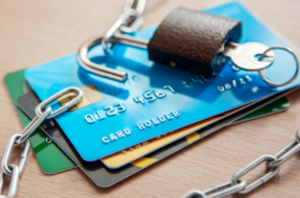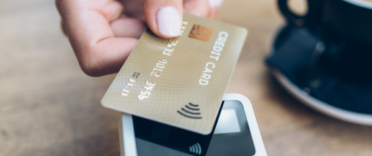 The simple answer is yes. Cancelling an unused credit card is likely to affect your credit score. However, it will depend on a number of factors as to whether your credit score goes up or down. In some situations, ditching your credit card can mean you get rid of an unnecessary line of credit and give your overall credit score a handy boost. On the other hand, shredding your plastic can also hurt your credit score in certain scenarios. In this article we will break down the pros and cons of hanging on to an unused credit card versus opting to close your account.
The simple answer is yes. Cancelling an unused credit card is likely to affect your credit score. However, it will depend on a number of factors as to whether your credit score goes up or down. In some situations, ditching your credit card can mean you get rid of an unnecessary line of credit and give your overall credit score a handy boost. On the other hand, shredding your plastic can also hurt your credit score in certain scenarios. In this article we will break down the pros and cons of hanging on to an unused credit card versus opting to close your account.
Pros and cons of cancelling an unused credit card
Below we have summarised the main advantages and disadvantages of cancelling unused credit cards. We go into further detail later in the article, giving examples of when you should consider either cancelling or keeping your unused credit cards.
Pros of cancelling an unused credit card
- Reduces the risk of being a victim of serious fraud
- May improve how lenders view you as you are less reliant on credit
- Removes the temptation to spend and build-up debt
- Stop paying any unnecessary annual fees
Cons of cancelling an unused credit card
- Increases your credit utilisation (the amount of available credit that you have used) which can be viewed negatively by some lenders
- Can leave you with a 'thin' credit file which lenders could view negatively
- Lowers the average age of your credit accounts
Will my credit score go up if I close unused credit cards?
No, not necessarily. In fact, for some people it could go down. The key point to consider is the reason for cancelling the card. If you've had 'problem debt' in the past – debt that you struggle to pay off – then it would be sensible to cancel any unused credit cards to ensure you don't give in to temptation. Even if your credit score is negatively impacted in the short term, it would recover. Building up debt that you will struggle to repay is much more likely to cause long-term damage to your credit score.
If you are struggling with debt or you feel like your credit card balance is out of control, read our article 'Where to get free debt advice'.
There are lots of ways to give your credit score a boost. You may be surprised how quick and easy some of the most effective options are. Read our article 'How to improve your credit score quickly' to learn more.
If the only reason for cancelling the card is that you don't use it very often, then you may be better off keeping it. Cancelling the card would increase your overall credit utilisation – the percentage of your available credit that you are currently using – and could leave you with a 'thin' credit file, negatively impacting your credit score. Read our article 'The best way to check your credit score for free' to learn more about checking your credit score.
Below we have summarised when it may be sensible to cancel an unused credit card and when it may be best to keep it.
When should you cancel an unused credit card?
As a rough guide, it is better to cancel an unused credit card if:
- The card has a high annual fee
- The card has a high interest rate
- You have had problems with debt in the past
- You have multiple unused cards and/or you are considering applying for a mortgage
If you are considering cancelling unused credit cards, always cancel the newest cards first. Older cards have a greater impact on your credit score, so cancelling a newer card is often better.
When should you keep an unused credit card?
As a rough guide, it is better to keep an unused credit card if:
- You are cancelling only because the card is not being used
- You have a limited number of credit card accounts open
- If it is the oldest credit account on your credit file
- It significantly increases your credit utilisation
Try and keep your credit utilisation to around 25% (for example, if you have a credit limit of £5,000, don't put more than £1,000 on the card)
What is the best way to cancel an unused credit card?
Cancelling and closing down a credit card account is relatively straightforward, however, you should think carefully before you contact your card supplier.
Before cancelling your unused credit card you should:
- Check your balance is at zero. If it isn't, ensure that you pay off any outstanding balance before attempting to close down the account.
- Double-check to see if you have any unused rewards and use these before you cancel the card.
- Check if there is an interest-free period remaining on the card and consider whether you could make use of it.
To cancel your unused credit card safely you should:
- Contact your credit card issuer by phone and confirm that you wish to close down the account. It is likely that they will offer a reduced credit limit or entice you with an alternative offer but try and stay strong.
- Send confirmation of your cancellation request in writing.
- Cancel any associated automated payments such as direct debits or standing orders.
- If there are any additional cardholders on the account, make sure that they are aware and ensure that they destroy their credit card.
- Cut up your credit card thoroughly or even better, shred it.
How to find out which credit card is best for you
You can use Money to the Masses partner Creditec* to quickly build a list of the credit cards that match up with your needs. By simply adding in a few basic details, you will get a tailored collection of the best credit cards for you. You can use your Creditec results to check how likely you are to be accepted for a certain card, which cards available to you offer the best rewards or find out what option will leave you with the lowest fees to pay. Creditec is able to check your eligibility without running a full credit check, which means your credit score will not be affected. Click this link to start your comparison*.
Does closing a credit card hurt your credit score?
There is no right or wrong answer and cancelling an unused credit card can impact your credit score both positively and negatively, depending on a number of factors. It is important to understand that you don’t just have one, universal credit score. Each credit reference agency uses their own system when compiling your score and lenders will look at a number of factors when assessing your creditworthiness. These can include:
- How you have managed credit in the past
- What is the outstanding credit in relation to the limit on your credit cards
- Have all payments been made on time?
- Do you make the minimum payments or do you regularly make over-payments?
- Do you use an agreed overdraft facility?
- How long have you had an agreed overdraft?
- Have you used an unauthorised overdraft?
- Have you been declared bankrupt?
- Do you have a County Court Judgement, Individual Voluntary Arrangement or Debt Management Plan in place?
If you are considering cancelling an unused credit card but are worried about the impact it will have on your credit score, then perhaps consider contacting the credit card provider and reducing the available credit limit. By reducing the credit card limit, you can see the impact that it has on your credit score without having to fully cancel the card. You can then choose to cancel the card at a later date.
You will need to clear the balance on your card before you cancel it. Read our article '4 easy ways to clear your credit card debt' to learn more.
If a link has an * beside it this means that it is an affiliated link. If you go via the link Money to the Masses may receive a small fee which helps keep Money to the Masses free to use. But as you can clearly see this has in no way influenced this independent and balanced review of the product.







